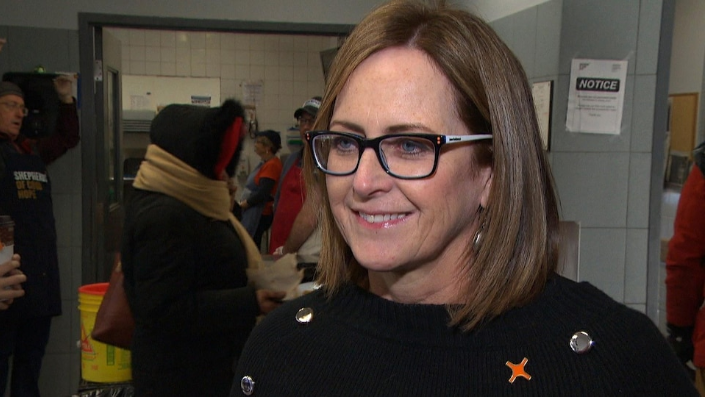Let’s Resolve to End Homelessness in 2020

By: Deirdre Freiheit, President and CEO of Shepherds of Good Hope
The New Year is a time to reflect on changes we want to make in our lives. Maybe it’s exercising more, reducing our screen time, drinking more water. It’s definitely all of that for me. It can also be a time for us to reflect on changes we want to make in our community. This New Year, I’m resolving to work with community partners to end chronic homelessness in Ottawa. I hope you’ll join me.
Homelessness in our city has reached a crisis. In 2018, nearly 8,000 unique individuals used an emergency shelter, a 6.5% increase from the previous year. There were more than 12,000 applicants on the social housing waiting list, which is a 14.8% increase. These were record highs in both instances. As the capital city of one of the best countries to live in the world, these are not the records we want to be setting. We cannot have individuals and families waiting for years to access affordable housing. Housing is a human right.
The number of chronically homeless individuals in Ottawa, who have been homeless for more than six months, is 439. 151 of them stay at Shepherds of Good Hope. We know who they are and, often, the contributing factors that led to their homelessness. They are not chronically homeless by choice. They are not lazy and they don’t view shelters as comfortable places to stay, nor as their forever homes. Add stigmatization of people who are living with trauma, mental health challenges and addictions to the unavailability of affordable housing and the result is chronically homeless individuals who feel like there is no place for them in their community.
The City of Ottawa is a signatory to the Built for Zero campaign through the Canadian Alliance to End Homelessness. This means that we are working towards the goal of a “Functional Zero” end to homelessness, in which a community has a systematic response to homelessness in place, with comprehensive prevention services. Any unavoidable experiences of homelessness, then, are rare and brief.
Surely that is the type of community we want to live in. The natural next question must then be, “how do we get there?” We need investments in affordable housing with a wide range of supports. Housing options must be responsive to the needs of particular populations like women and children fleeing violence, seniors, newcomers, youth, Indigenous peoples, LGBTQ individuals and veterans. We need to listen to the voices of people who are homeless and vulnerably housed and meaningfully engage them in our planning and policy development.
Eliminating chronic homelessness in Ottawa is achievable; however it can’t be done by one person, organization or level of government alone. It will take a community to achieve Functional Zero and must start with each of us reflecting on the roles we play in our homes, workplaces and communities. I will be working with my teams, our community partners, City of Ottawa staff, City Councillors, volunteers and motivated citizens to do everything we can to end chronic homelessness in Ottawa. It starts with our fierce resolve in not accepting our current crisis as the city’s new normal. Please join me and those of us who are working hard to ensure that everyone has a permanent home to call their own.
We can do this.
Homes for all. Community for all. Hope for all.

